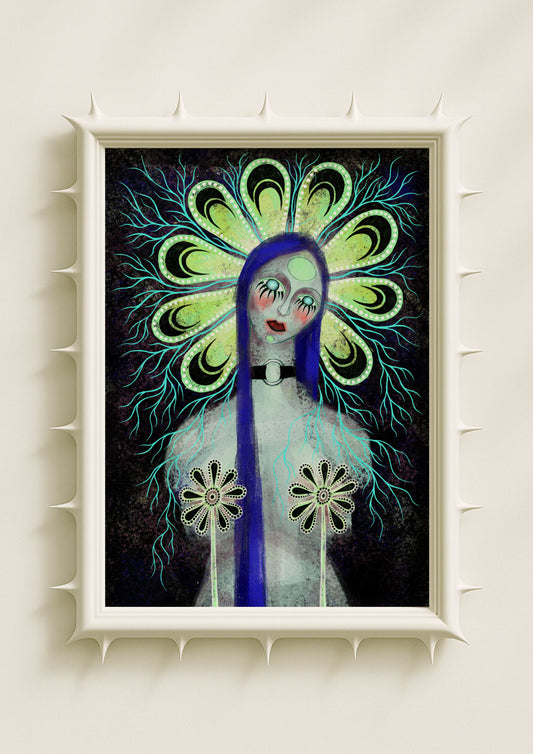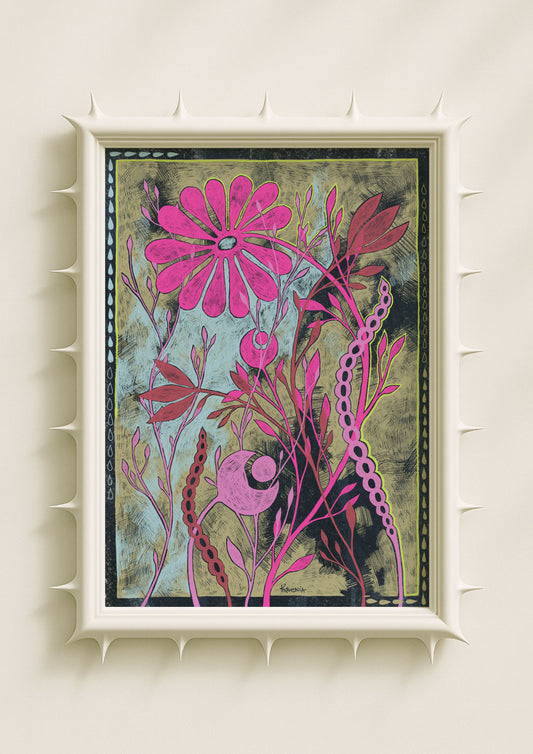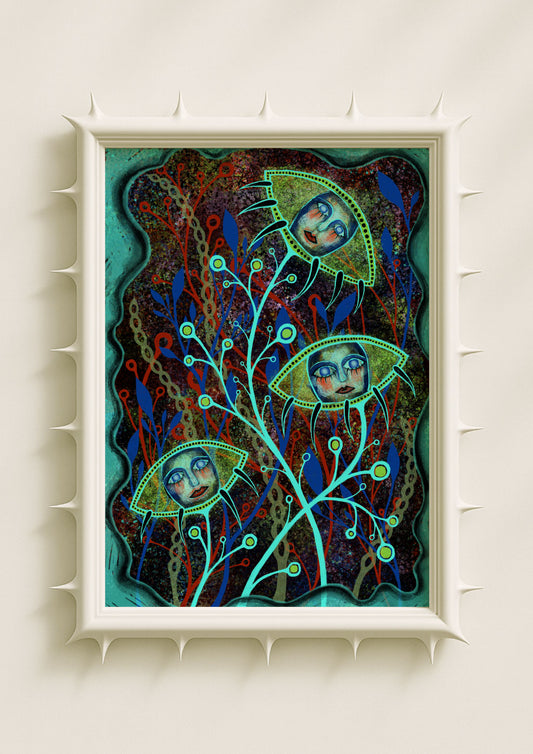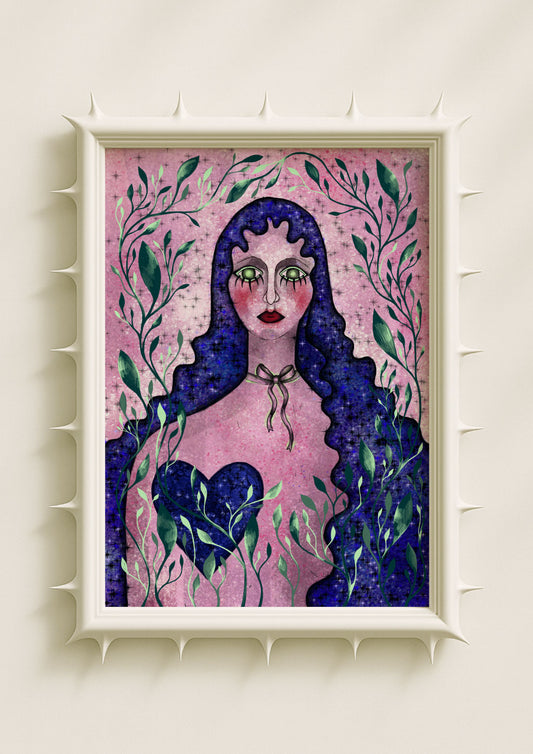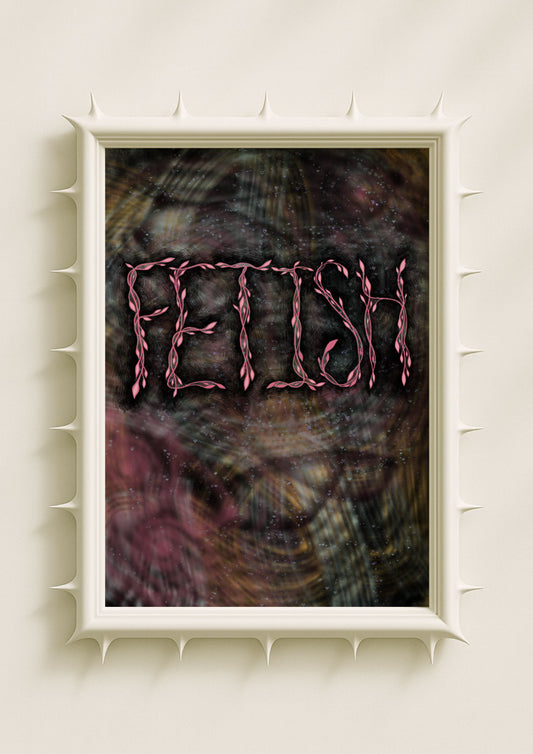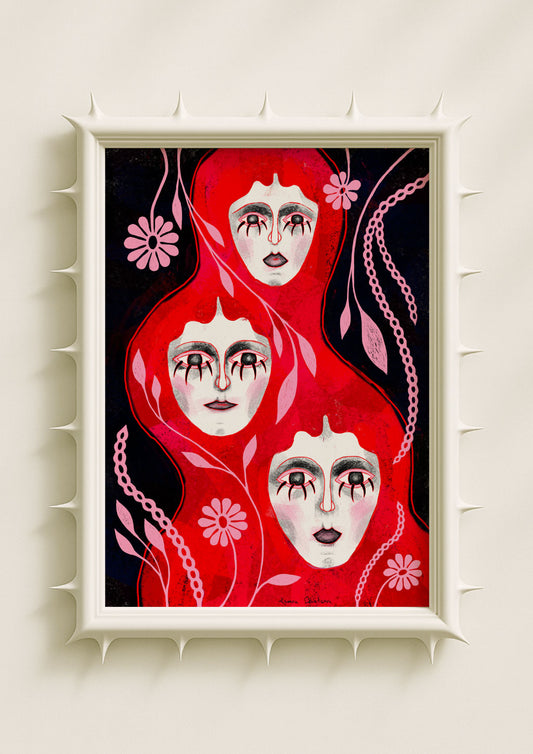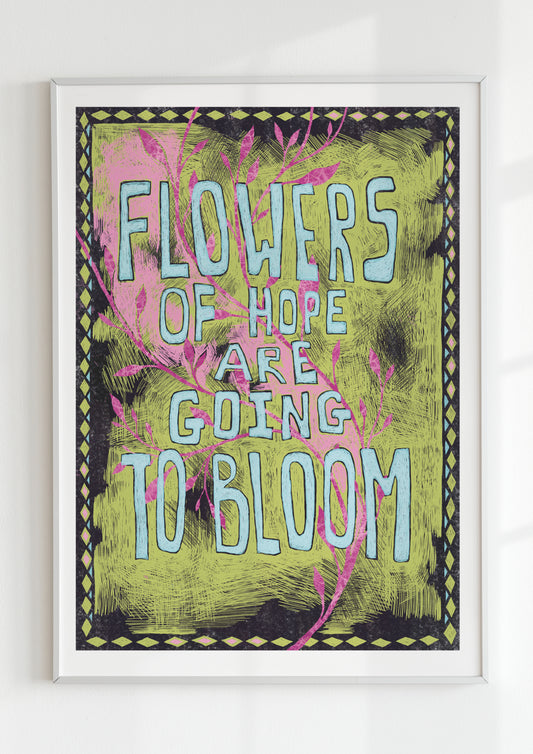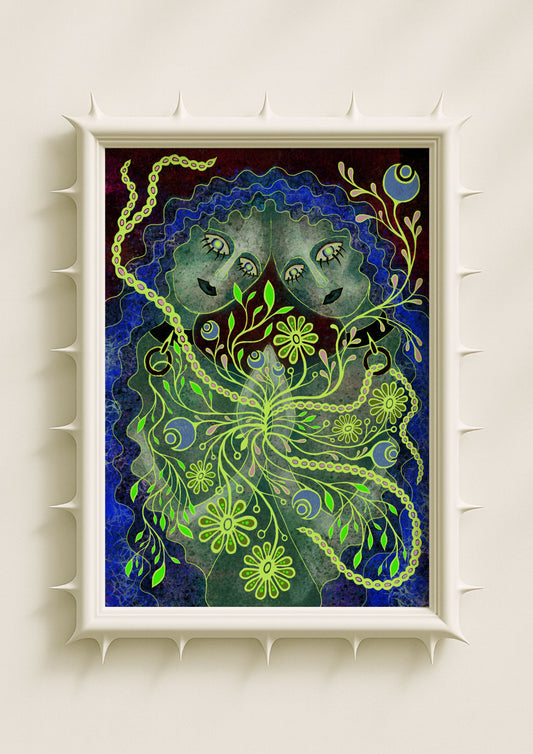The Truth That Lives in Darkness
Dark fairytales have a way of speaking directly to the emotional core. They move past polished narratives and reveal experiences that adults recognise but rarely articulate. Darkness becomes a language for vulnerability, fear, transformation, and longing. When I create surreal portraits, I draw from this same emotional register. The blend of innocence and shadow is not about contrast for its own sake; it is a way of expressing truths that realism cannot hold. A calm face with too-wide eyes, a glow that feels slightly uncanny, or a botanical form that twists toward the figure mirrors the emotional honesty of the dark fairytale.

Innocence as a Fragile, Luminous Force
In fairytales, innocence is rarely naive. It is perceptive, attuned, and alert to danger. That quality shapes the expressions in my portraits: the steady gaze, the soft light on the cheeks, the calm that seems more aware than comfortable. Innocence becomes an emotional lens through which the viewer senses everything the figure carries. It is not purity untouched by shadow, but sensitivity that survives alongside it. This delicate, luminous innocence is often the most powerful presence in both fairytales and artwork—it reveals what darkness tries to conceal.
Shadow as Emotional Depth
The shadow in dark fairytales is not simply fear. It is memory, trauma, buried instinct, the unknown parts of the self. In my portraiture, shadow appears through muted blacks, acid greens, or unexpected symmetry. It creates tension within the stillness of the figure, hinting at experiences that the portrait cannot—or will not—express directly. Shadow is the place where emotional complexity gathers. It gives weight to the image, offering a quiet intensity that deepens the fairytale atmosphere.

Surreal Symbolism as Inner Language
Fairytales rely on symbols—keys, forests, creatures, impossible tasks—to express inner life. My surreal botanicals and hybrid forms follow the same logic. A glowing seed inside a flower becomes a symbol of guarded hope. A mirrored petal reflects identity in transition. A botanical shape that clings too closely echoes emotional dependency or longing. These elements act as internal metaphors, translating psychological states into visual form. The symbolism feels surreal, but the emotion behind it is grounded and real.
Where Beauty and Unease Coexist
Dark fairytales thrive on the coexistence of opposites: beauty and danger, softness and threat, wonder and dread. My artwork carries that same duality. The colours—luminous pinks, soft blacks, deep blues, neon edges—can feel inviting and unsettling at once. The portraits appear gentle at first glance, but their distortions introduce a quiet unease. This friction is what creates emotional honesty. It mirrors the internal conflicts that define real human experience, where tenderness and fear live side by side.

Emotional Realism Through Dream Logic
Dream logic—so essential to dark fairytales—allows emotions to take shape without explanation. My portraits adopt this storytelling method. The figure might not tell a story, but their eyes, colours, and hybrid botanicals create an atmosphere that feels emotionally true. The surreal becomes the bridge between the visible and the internal. It allows the portrait to speak directly to the viewer’s emotional intuition, much like a fairytale speaks to the subconscious.
Why We Trust the Dark Fairytale
We trust dark fairytales because they treat emotion with seriousness. They acknowledge vulnerability without diminishing it, and they show transformation as a difficult, necessary journey. In my artwork, the interplay of innocence and shadow reflects this same honesty. The portraits are not idealised—they are emotionally alive. They hold quiet tension, understated fear, flashes of softness, and a sense of mythic interiority. They feel like fairytales not because of fantasy, but because they honour emotional truth.

The Surreal Portrait as a Modern Fairytale
Ultimately, the emotional honesty of dark fairytales shapes how I build the inner world of each portrait. The glow, the shadow, the botanical symbols, the stillness, the distortions—they create a space where human experience feels mythic yet intimate. The portrait becomes a modern fairytale: a place where innocence and shadow coexist, where surreal details reveal emotional depth, and where honesty emerges not from clarity, but from atmosphere and symbolism.
